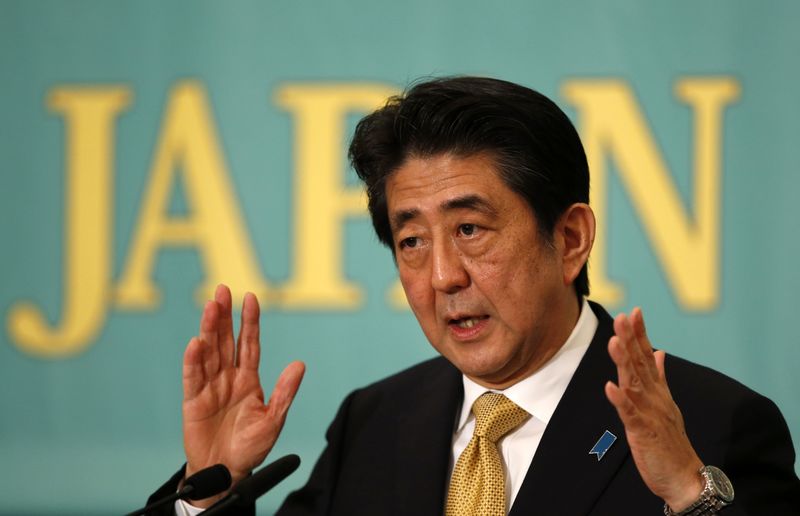By Sumio Ito and Takahiko Wada
TOKYO (Reuters) - Japan's financial regulator is running stress tests to see if too much cash in the system is stifling smaller banks' ability to earn, unlike regulatory tests elsewhere that have been designed to see whether lenders had enough capital to cope with financial shocks.
Two people with direct knowledge of the process said the Financial Services Agency (FSA) had initiated the tests on concerns that with 10-year Japanese government bond yields near a record low around 0.3 percent, regional lenders in particular could be at risk as the gap between what they pay for deposits and what they collect on loans and bond holdings shrinks.
The FSA told Reuters: "As a general matter it is important for financial institutions to have the ability to respond to changes in the operating environment, including changes in interest rates. That applies beyond regional banks. We cannot comment on any specific or individual matters beyond that."
The action highlights one of the unintended risks of Prime Minister Shinzo Abe's programme to end decades of deflation with the support of the Bank of Japan (BOJ), which by injecting monetary stimulus into the economy is helping to keep interest rates at rock bottom.
Critics say policymakers in Europe should be considering such risks, too.
The European Central Bank completed a review of the resilience of euro zone banks in October and came under fire for not including a deflationary scenario in its stress test hypotheses, even though inflation and bond yields in much of the region are hovering barely above zero.
ECB Vice President Vitor Constancio defended the omission by arguing that a "deflation (scenario) is not there because indeed we don't consider that deflation is going to happen".
LOAN DEMAND SHRINKING
It was not immediately clear what scenario or assumptions the FSA was using in its assessment of the risk to regional and smaller banks, nor how the agency would follow up with lenders that appeared to be at particular risk from a period of persistently low, long-term interest rates.
Japan's more than 100 regional banks account for around 40 percent of the country's $4.6 trillion (2.95 trillion pounds) in outstanding loans, but overall loan demand has shrunk 10 percent over the last 20 years.
Such banks, which typically serve smaller businesses, have seen lending fall as Japan's population ages, and many have cut the interest rates they charge to win business.
For over a year, the FSA has been urging regional banks to consolidate or seek customers abroad.
Japan's second-largest regional lender, Bank of Yokohama (T:8332), said last month that it was considering a merger with Tokyo-based Higashi-Nippon Bank Ltd <8536.T> in a potential deal that analysts said could spur consolidation.
Regional banks' lending rates have come under pressure from the BOJ's programme of quantitative easing, which began in early 2013. Average lending rates from 64 regional banks have fallen over that period from about 1.5 percent to about 1.2 percent, according to BOJ data.
At the same time, average loan rates for the group of smaller institutions known as the secondary regional banks have fallen from about 1.7 percent to about 1.5 percent.
As a group, profits from core lending by the regional banks dropped 1.7 percent in the most recent quarter from the same period a year earlier and by 3.7 percent for the secondary regional banks, according to data from the BOJ.
The FSA has had little response so far to its call for more consolidation among smaller banks, but more have followed calls by officials to seek opportunities offshore.

Earlier this month, 10 regional banks, including Joyo Bank Ltd <8333.T>, joined a syndicate of lenders providing a $375 million loan to Bunge Ltd, a major trader of commodities based in the United States.
(Reporting Sumio Ito and Takahiko Wada; Writing by By Kevin Krolicki; Editing by Will Waterman)